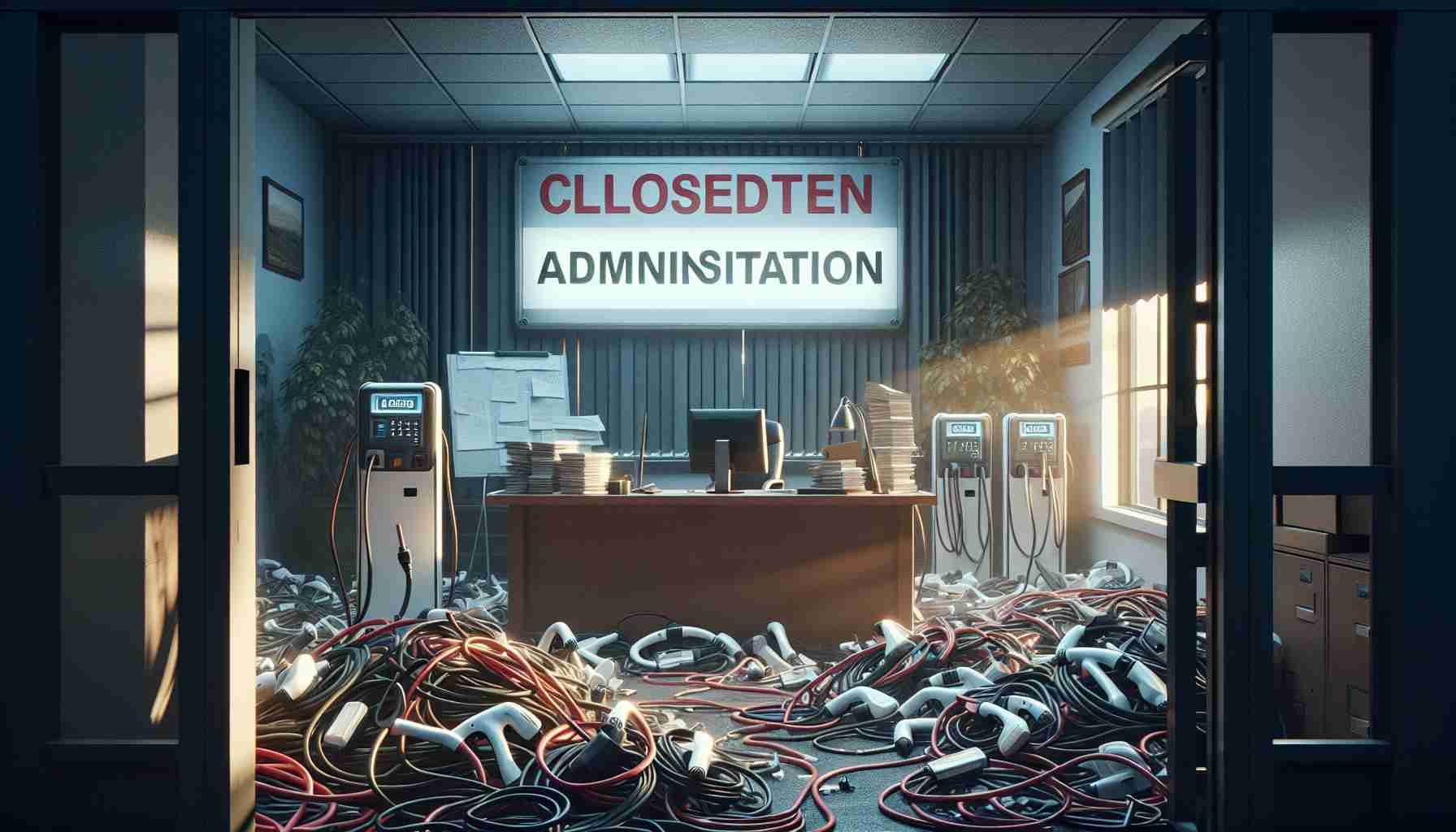- The FHWA has paused the NEVI Formula Program, halting a key $5 billion initiative for EV charging expansion in the U.S.
- This program was initially established under the Biden administration to improve accessibility for all vehicle types.
- State efforts to deploy new charging infrastructure are now suspended, raising concerns about future projects.
- Industry analysts dispute the legality of the FHWA’s pause, indicating potential for significant legal challenges.
- The pause threatens businesses dependent on EV charging infrastructure, including prominent companies like Tesla.
- This move highlights instability within the EV market and raises doubts about the future of U.S. electric vehicle infrastructure expansion.
In a shocking move, Trump’s Federal Highway Administration (FHWA) has put a halt to the National Electric Vehicle Infrastructure (NEVI) Formula Program, a vital $5 billion initiative designed to expand EV charging across the U.S. Originally funded by the Biden administration as part of the Infrastructure Act, this program was set to transform the nation’s landscape, providing charging stations accessible for all vehicle makes.
State plans for deploying this crucial charging infrastructure are now suspended, effectively freezing commitments to new projects while still allowing reimbursement for previously allocated funds. This unexpected development has sent ripples through the EV industry, with analysts fuming about the legality of such a pause. Many experts believe the FHWA lacks the authority to cancel NEVI through a mere memo, prompting the likelihood of fierce legal battles as states prepare to respond.
The consequences of this decision are poised to be substantial, potentially stalling progress for businesses reliant on EV charging, including major players like Tesla. As the industry increasingly embraces the NACS charging standard— a direct byproduct of NEVI—these new restrictions could undermine Tesla’s quest for dominance in the energy delivery sector.
With this maneuver, the Trump administration not only stirs chaos in the EV market but also raises questions about the long-term viability of the U.S. EV infrastructure expansion. As stakeholders brace for potential lawsuits, the future of American electric mobility hangs in the balance, steering toward an uncertain road ahead.
Stay informed and keep an eye on how this will unfold — the evolution of our energy landscape depends on it!
Shocking Development in EV Charging Infrastructure: What You Need to Know!
Halt on the NEVI Program: Implications and Insights
In a surprising turn of events, the Federal Highway Administration (FHWA) has suspended the National Electric Vehicle Infrastructure (NEVI) Formula Program, which involves a significant $5 billion investment intended to expand electric vehicle (EV) charging stations nationwide. This initiative was originally supported by the Biden administration through the Infrastructure Act, aiming to improve accessibility for all types of EVs.
Key Features of the NEVI Program
– Funding: The NEVI program allocates $5 billion over several years for EV charging infrastructure development.
– Accessibility: The program was designed to provide equitable access to charging stations across urban and rural areas.
– Technological Standards: It encourages states to adopt specific charging standards, with the NACS (North American Charging Standard) becoming increasingly common.
Current Situation and Consequences
While states had been gearing up to implement their deployment plans, this sudden pause halts new projects but allows states to receive reimbursements for already allocated funds. This has sent shockwaves through the EV industry, leading to concerns over:
– Legal Authority: Experts question the FHWA’s power to halt such a program through administrative memos, potentially leading to litigation.
– Market Impact: Major companies, including Tesla, which has relied on NEVI for expanding its charging network, are now at risk. The shift towards NACS charging standards may be jeopardized if funding dries up.
Future Trends and Predictions
– Legal Challenges: Expect ongoing legal battles as states challenge this decision, which could delay further progress in EV infrastructure.
– Market Dynamics: The uncertainty could lead to shifts in market strategies for key stakeholders in the EV industry, possibly favoring companies with diversified energy solutions.
Related Questions
1. What are the potential legal ramifications of halting the NEVI Program?
– Legal experts predict that many states are likely to sue the FHWA, arguing that it lacks the authority to unilaterally halt federally funded programs. This could lead to a lengthy court process that will further delay EV infrastructure developments.
2. How will this affect the rollout of EV charging stations in the U.S.?
– The immediate effect is a freeze on new charging infrastructure projects, potentially causing a shortage of public charging stations. This could be a setback in the transition to electric mobility as consumer confidence may wane due to lack of accessible charging options.
3. What should consumers and businesses in the EV sector consider going forward?
– Stakeholders should prepare for volatility in the EV market and advocate for clearer government policies. Businesses may need to explore alternative funding sources or technology partnerships to adapt to the shifting landscape.
Suggested Links
For more insights and updates on the electric vehicle industry, visit energy.gov for resources and policy updates.



















